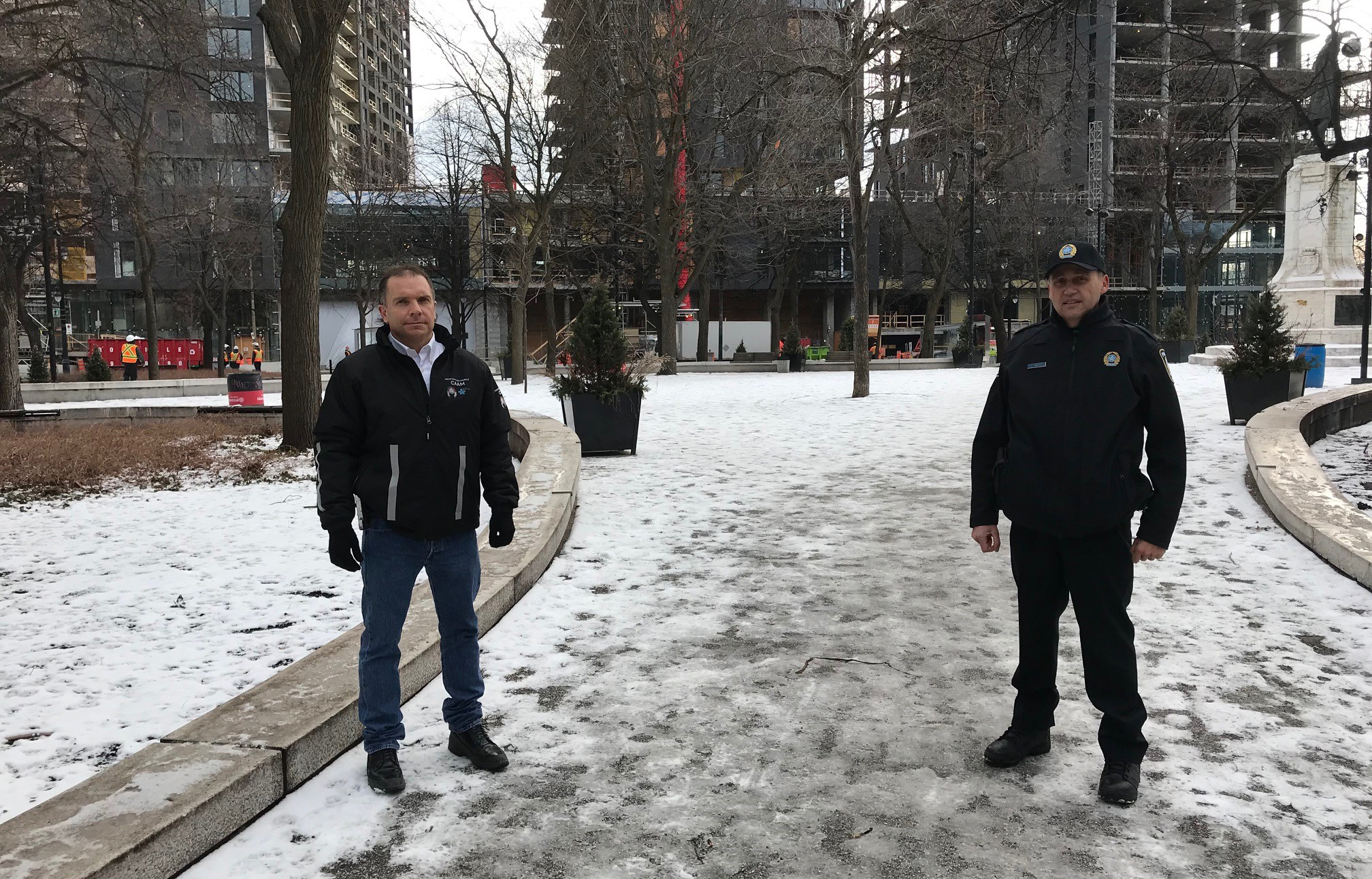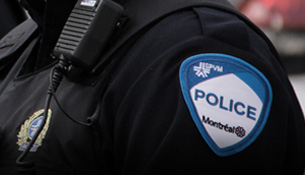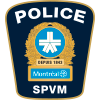
Patrouilles conjointes autochtones
In 2014, the Service de police de la Ville de Montréal (SPVM) deployed Patrouilles conjointes autochtones, in partnership with the Native Friendship Centre of Montréal (NFCM). Since then, NFCM caseworkers patrol with police officers from neighbourhood police stations (PDQ) go meet members of the First Nations, Inuits and Métis living in vulnerable situations in Montréal and assist them where they are. In May 2021, the NFCM doubled the number of its caseworkers in the Patrouilles conjointes autochtones.
Culturally adapted interventions
These joint patrols were designed to offer interventions adapted to the culture and reality of Indigenous people in vulnerable situations. These interventions seek to improve access by these individuals to a continuum of services within the health, social services and community network.
The approach of the Patrouilles conjointes autochtones is focused on the helping relationship, referral to resources and on support for Indigenous people in vulnerable situations, to find more sustainable solutions to their problems.
The Patrouilles conjointes autochtones also have a mandate to do prevention with people from these communities who are newcomers to Montréal in order to facilitate their integration. The patrol officers also seek to make them aware of the behaviours to adopt to ensure their safety as pedestrians.
An approach to know each other better and intervene
The Patrouilles conjointes autochtones allow police officers to create and maintain bonds of trust with members of Indigenous communities. In fact, this networking between the NFCM caseworkers and the patrol officers contribute to reduce Indigenous suspicion of the police. Because the caseworkers speak Inuktitut or Cree, the language barrier is eliminated. The presence of these caseworkers also ensures that police interventions are culturally adapted.
The closer relationship between police officers and members of Indigenous communities helps them get to know them better and have a better understanding of their histories and the intergenerational traumas they experienced before coming to live on the street, for example. The police officers participating in the joint patrols learn how to help these individuals and become resource persons in their unit for intervening with Indigenous people.
Team
In May 2021, the NFCM doubled the number of its caseworkers in the Patrouilles conjointes autochtones from two part-time to four permanent workers. The doubling of the staff was made possible by $300,000 in funding allocated by the Secrétariat aux Affaires autochtones to the NFCM in December 2020.
By having more staff, the Patrouilles conjointes autochtones cover more time periods and more sectors, from Downtown to Dorval. The NFCM’s caseworkers are matched with patrol officers from four additional neighbourhood police stations (PDQ), including PDQ 5, 12, 15, 16, 20, 21, 38 and the SPVM’s Metro Section. These patrols are deployed in Montréal's territory according to the observed needs of Indigenous people in vulnerable situations.
Schedule
From Monday to Thursday, PDQ foot patrol officers are accompanied by two NFCM caseworkers, according to the following schedule:
- 9 a.m.to 1 p.m., Monday to Thursday by the first two-person team;
- 2 p.m. To 7 p.m., Mondays and Tuesdays, and 3 p.m. to 7 p.m., Wednesdays and Thursdays, by the second two-person team.
Iskweu Project
The SPVM also participated in the Iskweu Project. This initiative of the Native Women’s Shelter of Montreal has the purpose of supporting families when an Indigenous woman or girl disappears and cooperating with the police in such a situation.
For the SPVM and its partners, these Patrouilles conjointes autochtones and this project are achievements to adapt their offer of services, accounting for the issues specific to the reality of Indigenous communities.
To find out more
Publications
People who are mentally disturbed or in crisis situations
Homeless people
Assistance resources
Other innovative police practices at the SPVM
Brigade des espaces publics (french only)
Équipe de soutien aux urgences psychosociales - ESUP (english)
Équipe mobile de référence et d’intervention en itinérance - EMRII (english)
E=MC2 au service des personnes en situation d’itinérance (english)
Équipe métro d’intervention communautaire - EMIC (french only)
Formation en endiguement et en désescalade (english)
Patrouilleurs RIC (Réponse en intervention de crise (english)
Modèle Intervention auprès des aînés maltraités –IPAM (english)
In the media
Radio-Canada, Espaces autochtones
2019 : Partenariat entre le SPVM et la police du Nunavik pour retrouver les personnes disparues
2018 : Plus de contenu autochtone pour la formation des policiers du SPVM
SPVM, 2019 : L’agent Carlo DeAngelis s’investit avec la communauté autochtone
Regard sur l’Arctique, 2018 : Autochtones à Montréal : souvent un aller simple vers l’itinérance



